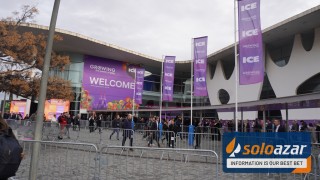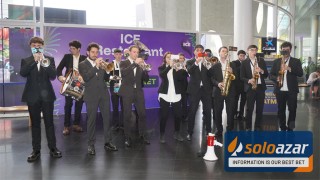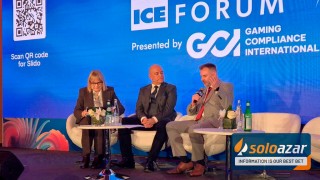Online betting faces fading campaign in Brazil
Wednesday 28 de August 2024 / 12:00
2 minutos de lectura
(Brazil).- A growing wave of criticism targets the online betting and gaming sector in Brazil, fueled by media, political, and social campaigns against its unregulated expansion since legalization in 2018.

The sports betting and online gaming sector is facing a strong image erosion campaign in the mainstream media, through the participation of political, social and religious actors, banks, retail and consumer entities due to the accelerated and unregulated growth following the legalisation of fixed odds betting by the National Congress in December 2018. The feeling is that various sectors are against online betting and gaming.
In recent days there have been campaigns, articles, editorials and negative reports criticising the advance of online betting and gaming in the daily lives of Brazilians. Journalist Elio Gaspari published the article ‘O preço da gambatina das bets’ in O Globo and Folha de S.Paulo, which has already been contested by BNLData, Estadão published the editorial ‘É urgente dar fim à farra das “bets”’ on Sunday (25), Folha de S. Paulo also criticised the article in its editorial ‘O preço da gambatina das bets’. Paulo also criticised in the editorial ‘High taxes and advertising cuts for betting’ and in the article ‘Brazil has become a gigantic casino’ by Alvaro Costa e Silva, while the Globo on Sunday carried the article ‘Addiction just a click away. Young influencers are used to publicise gambling among children and teenagers' and the latest edition of VEJA magazine published “Dizzying growth of betting worries private initiative and public authorities”. These critical manifestations prove the discomfort that online betting and gaming are causing in society.
The Instituto Conhecimento Liberta (ICL), whose partner is digital influencer and repentant Felipe Neto, who said this week that ‘agreeing to publicise bookmakers was the biggest mistake of my life’, has launched the #ApostasMatam campaign. According to the founder of Instituto Conhecimento Liberta and ICL Notícias, economist and ex-banker (former Banco Pactual partner) Eduardo Moreira, the ‘betting market is Brazil's biggest problem’.
Another campaign warning against betting was launched by the Associação Brasileira dos Atacarejos - ABAAS with the concept ‘Bets = online betting games - Don't fall for it! According to the organisation, online betting and games of chance have caused losses for many people. Aimed at employees of member organisations, the brochure warns: ‘Let's protect our people from these harmful vices! If you know someone in this situation, tell them about the internal communication channels and seek support from your company leader or HR’.
In this vein of producing negative facts against the sector, there's even the ‘Fortune Tiger’ slot, which has literally become synonymous with gambling and is being satanised day in, day out - even when it's not to blame for the problem.
Five years without regulation
In fact, the source of the problems or negative externalities was the government's lethargy in regulating online betting and gaming. Law 13.756/18, passed in December 2018 and which legalised fixed-odds betting, stipulated that the government should regulate the legislation within four years. Due to the strong influence of parliamentary pastors on Jair Bolsonaro, the conservative president opted for omission and allowed an explosion in the supply of online betting and gaming through offshore operations based in countries where the sport is regulated. As betting was legalised, the world's main platforms started operating offshore in Brazil and the market exploded, with turnover of more than R$150 billion (US$30 billion), according to a survey by the Brazilian Legal Gambling Institute (IJL) and BNLData.
Organisations and journalists are surprised that betting has reached almost 1% of the Gross Domestic Product (GDP), but this is nothing new for experts in this segment, who have known for years that the potential of a country's gambling market or General Gambling Movement (GMM) is equivalent to between 1% and 1.6% of GDP, depending on the characteristics of the population and the betting culture of its citizens.
The lack of regulation of this sector for five years was recognised by the Secretary of Prizes and Betting of the Ministry of Finance - SPA/MF, Regis Dudena during the Thematic Debates Session in the Senate held earlier this month and which discussed bill 2234/22, which legalises casinos, bingos and jogo do bicho. On that occasion, the representative of the Ministry of Finance highlighted the lesson learned from what happened specifically with fixed-odds betting legalised in Brazil in 2018.
‘The first lesson we need to learn is that it was precisely legalisation that was not accompanied by regulation that generated most of the social problems, including the problems that Senator Girão mentioned so well earlier. The regulatory gap of four years, since the approval in 2018 of the law on fixed odds betting on sports betting, has generated several social problems that could have been avoided if the regulation provided for in the law, with a deadline of even two years, extendable for a further two years, had been carried out properly - which has not happened,’ he commented.
Regulation comes into force on 1st January 2025
Most of the criticisms of the negative externalities generated by the lack of regulation will be mitigated with the entry into force on 1 January 2025 of the set of regulations issued by the SPA-MF. For example, betting operators will be able to be held responsible for any abusive advertising on social networks or even misleading advertising by hired influencers. In addition, unauthorised companies will be prohibited from advertising or sponsoring sports, as well as establishing rules to prevent and tackle gambling disorders and protect the mental and financial health of bettors. The aim is to ensure a healthy consumer relationship between punters and fixed-odds betting operators who operate under federal authorisation.
Compulsive behaviour
One of the most widespread criticisms of the sector is the compulsive behaviour of part of society with the increased supply of games and bets. Reports such as ‘Bets: how sports betting can be a nightmare for mental health and shatter finances’ (Rádio CBN), ‘Aposta Temerária’ (Helio Schwartsman in Folha de S.Paulo), ‘Virtual roulette: the explosive growth of online betting in Brazil’ (Correio Braziliense) and ‘Bets: “If they were a drug, they'd be like crack”, compares a psychologist’ published by Estadão - a conservative newspaper with an editorial line against gambling - serve to illustrate this fatalistic approach to the pathology.
However, a study by the American Gaming Association (AGA) reveals that 97% of gamblers don't have a gambling problem, while 2 to 4% of gamblers have problems and 0.1 to 2% are considered pathological, and 1% have serious gambling problems. Recent studies in the UK indicate that between 0.5% and 0.6% of the adult population are pathological gamblers, while 1.4% of British gamblers are at moderate risk. It should be noted that these addicts already exist in Brazil, without any protection from the state, and that there is no reliable data on the situation due to its clandestine nature. Pathological behaviour is not only present in gaming and other activities are also capable of generating addiction.
Money laundering
Another ‘urban legend’ used by critics surrounding gambling and betting concerns money laundering, with the argument that the large volume of assets circulating in these bookmakers could be mixed with funds of illicit origin. With all the technology available, the obligation to identify the punter and the advent of PIX payment, the argument that legalised gambling could be conducive to money laundering is a fallacy for those who study and understand the subject. What's more, with a tax rate of over 38.5 per cent, laundering money through gambling is expensive and risky.
It is imperative that representatives, managers and executives in the gaming and betting sector mobilise to minimise criticism and prevent opposing movements from gaining traction over the next four months and creating an irreversible image deficit during the transition period to the regulated market. The question isn't whether 2025 will arrive, but how the image of betting and online gaming will start the new year with the regulated market.
Categoría:Online Games
Tags: Sin tags
País: Brazil
Región: South America
Event
ICE Barcelona 2026
19 de January 2026
R. Franco Digital reinforced its technological leadership at ICE Barcelona 2026 with IRIS Open Omnichannel Platform
(Madrid).- The Spanish iGaming provider advances its omnichannel strategy, highlights regulatory readiness, and showcases new casino titles at the industry’s leading event.
Friday 30 Jan 2026 / 12:00
“The 2026 World Cup Is Forcing a Rethink of How Betting Brands Advertise”- Rodrigo Cambiaghi, Sportradar
(Barcelona, SoloAzar Exclusive).- During ICE Barcelona 2026, where industry leaders gathered to discuss the future of gaming and sports betting, Rodrigo Cambiaghi, Senior Sales Executive for Digital Advertising at Sportradar, shared his perspective on how the 2026 FIFA World Cup is reshaping advertising strategies. In this interview, he explains why real-time data, automation and regulatory alignment are replacing mass exposure, and how major tournaments are accelerating a shift toward more precise, accountable and performance-driven sports advertising.
Friday 30 Jan 2026 / 12:00
Amusnet Marks a Decade of Growth with a High-Impact Presence at ICE Barcelona 2026
(Sofia).- The company combined a landmark anniversary celebration with product innovation, strategic partnerships, and strong business momentum at the industry’s leading event.
Friday 30 Jan 2026 / 12:00
SUSCRIBIRSE
Para suscribirse a nuestro newsletter, complete sus datos
Reciba todo el contenido más reciente en su correo electrónico varias veces al mes.



















